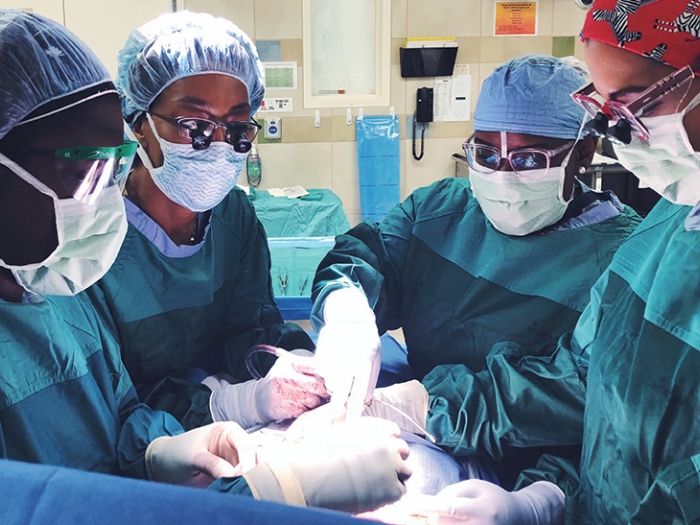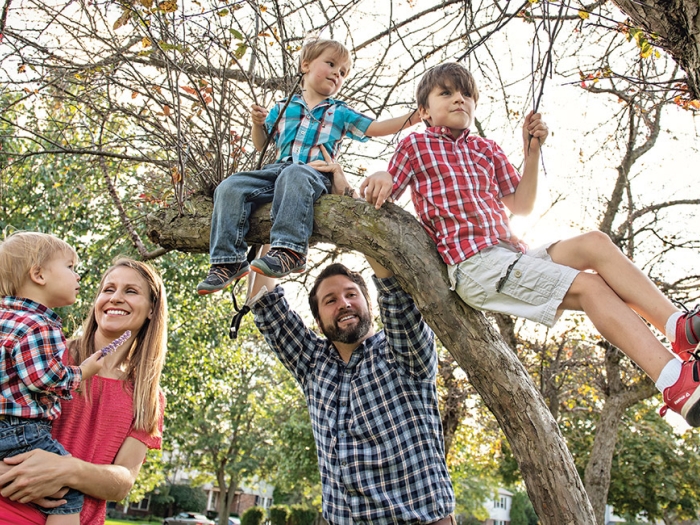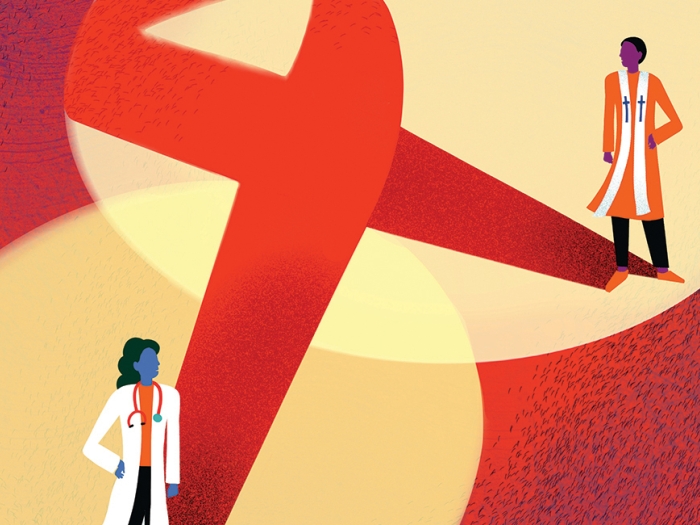U-M launches new learning community to encourage collaboration and faculty mentorship
Author |
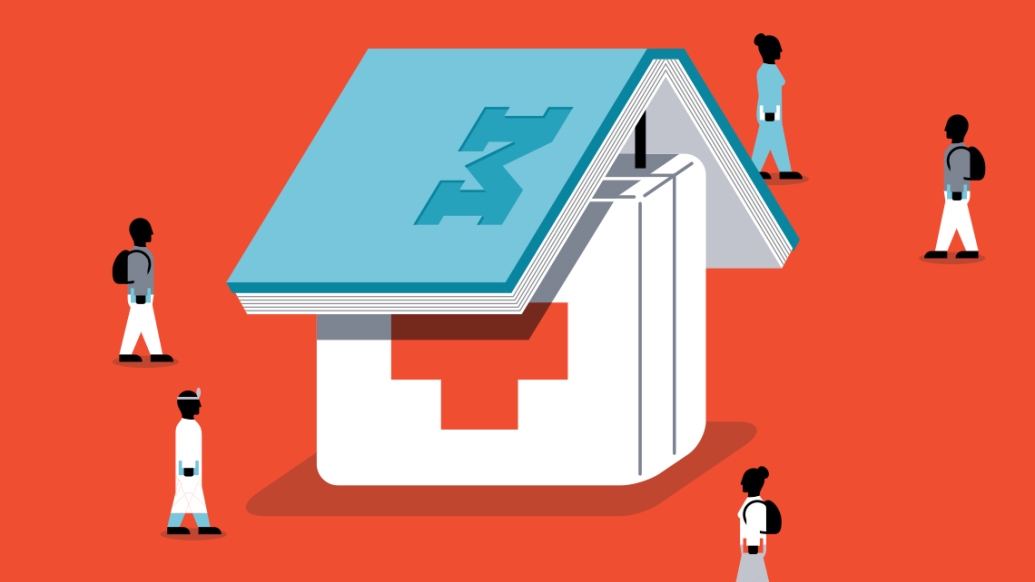
Medical school is a transformative time for aspiring physicians, when relationships built with colleagues, advisors and mentors are as essential as mastering the textbooks and coursework. The University of Michigan Medical School's M-Home, which launched with this year's incoming class, is a learning community designed to give medical students more opportunities to focus on those relationships and other important aspects of their personal and professional development.
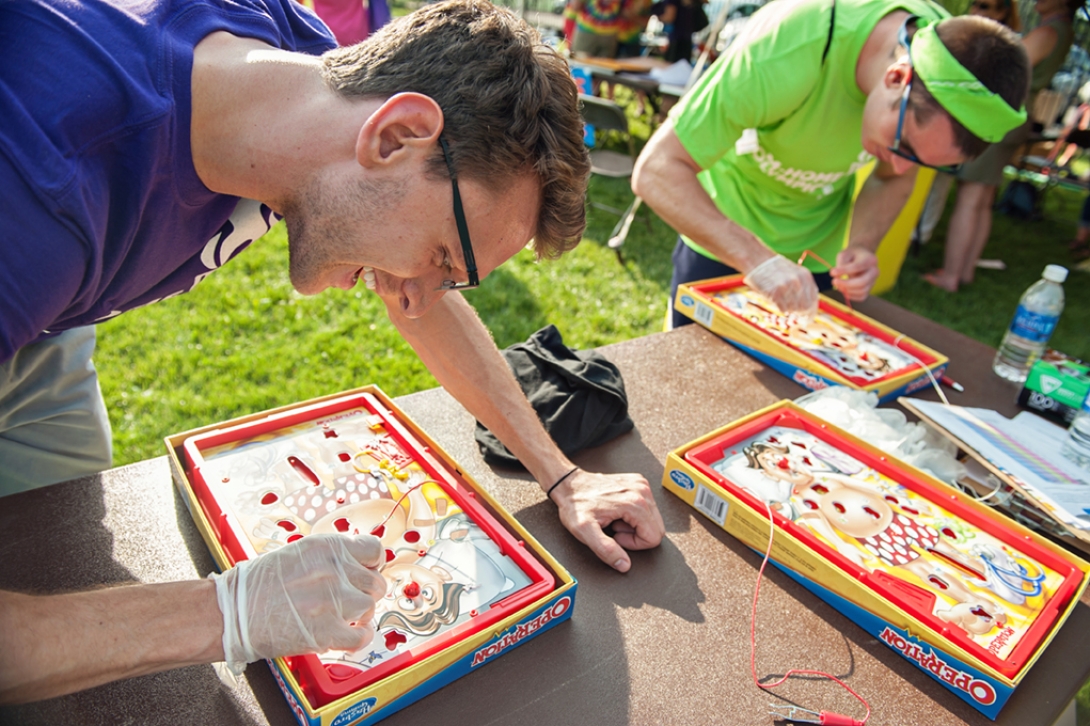
The M-Home will serve as a "home base" for medical students, allowing them to collaborate within smaller groups of classmates and faculty that will follow them throughout their medical education. Students will be assigned to one of four houses, each led by a faculty house director. Every house will include approximately 43 students from each class (M1-M4), totaling around 170 students, as well as 16 doctoring and coaching faculty.
Within the houses, 10-12 students will be paired with two faculty members to form a doctoring group, which they will remain in throughout their four years of medical school. The group will complete a doctoring course, with sessions held weekly during the first year. It will cover physical exam, diagnostic and communication skills, as well as more abstract concepts like health disparities, effective collaboration with patients and families, and stress management and professional wellness.
"As a physician, one of the most rewarding aspects of my job is the relationship that I have with my patients and their families, and to be able to help nurture the passion for those kinds of relationships is one of the most powerful reasons I wanted to be involved in the M-Home," says Heather Burrows (M.D. and Ph.D. 2000, Residency 2003), associate director of education for the Division of General Pediatrics and the director who oversees professional identity development and balance. "I also think there will be opportunities to talk about the importance of finding a good balance in your life, and I hope to engage faculty in those discussions as well."
The M-Home will serve as a "home base" for medical students, allowing them to collaborate within smaller groups of classmates and faculty that will follow them throughout their medical education.
The relationships fostered by the M-Home model are also intended to offer students more access to faculty mentors and advisors.
"The idea behind our learning community is to provide opportunities and support for students to connect with different faculty over time," says Michael Lukela, M.D. (Residencies 2002 and 2003), associate professor of internal medicine and of pediatrics and communicable diseases, and M-Home house director. "Our coaching faculty will serve as advisors, and whether or not there may be a natural evolution into a mentor relationship, students will still have close connections with these faculty members, who can guide them to additional faculty to take on complementary mentoring roles. These faculty connections are intended to guide the students' professional development, and support and nurture their personal development as they become physicians."
The collaborative approach of learning communities in medical education reflects the shift to team-based medical practice that is occurring in the national health care system. And as that system continues to evolve, the M-Home aims to help U-M medical students develop the skills and values to evolve with it.
"Medical school is often thought of as cut-throat or super-competitive, and that type of atmosphere doesn't really make sense for the career itself," says Katie Goldrath, an M3 student and class representative for the M-Home. "You can't help patients without working together, and the M-Home is trying to mimic that within the school setting in a way that will be fun and interactive, give you opportunities to reflect on the greater meaning behind what you're doing, and set a precedent for what teamwork is going to be like in your career."

